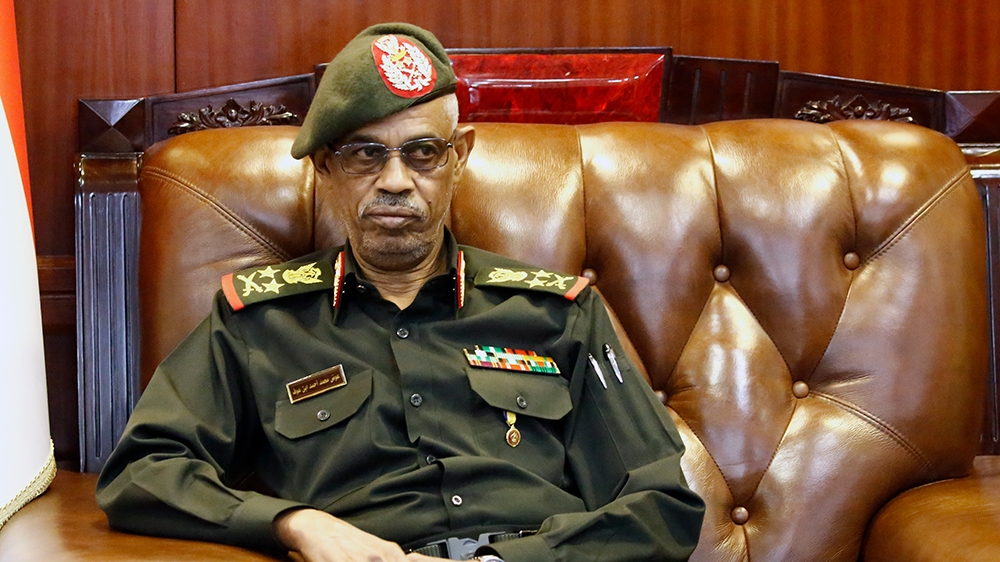Alwaght-Protests have continued in Sudan after Thursday's ouster of President Omar al Bashir, with masses demanding that the military hands over power to a transitional civilian authority.
After Friday's weekly prayers, protests were reported in Khartoum and other cities as organizers insist protesters keep the pressure on the government.
In a statement, the Sudanese Professionals Association (SPA) restated its demand for power to be handed immediately to "a transitional civilian government".
"What happened was that the masks merely changed, it is the same regime that the people revolted against, seeking to remove it from its roots," said the SPA, which has spearheaded months-long anti-government protests.
"We are still in the path of true revolution … our martyrs have shed their blood in pursuit for freedom and justice," it said.
People have been marching towards the army headquarters despite the military council's pledge to create a "healthy atmosphere" for people to converse and engage in a peaceful manner.
Sudan's Military Transitional Council (MTC) on Friday insisted that it had no interest in remaining in power beyond its mandate, saying it had assumed control of the country "for the sake of the people" and to "avoid chaos" following the departure of longstanding President Omar al-Bashir.
On Thursday, the army announced the “removal” of al-Bashir, who has ruled Sudan since 1989, following months of popular demonstrations against his continued rule.
It also announced the imposition of a two-year "transitional phase" to be overseen by the MTC.
“We have no ambition for power,” an MTC-appointed “political committee” said in a statement issued Friday. “Our priority is the country's stability.”
“We stand with the demands of the people,” it added. “We are part of them [i.e., the people].”
On Thursday evening, Defense Minister Ahmed Awad ibn Auf was sworn in as MTC chairman.
He took the constitutional oath in a ceremony aired on state television and presided over by Chief Justice Abdul Majid Idris.
Kamal Abdul-Marouf al-Mahi, chairman of Sudan’s joint chiefs-of-staff, was sworn in as deputy MTC chairman.
The MTC has also vowed to talk to protester leaders, who have continued to stage demonstrations in Khartoum, and “hear their vision”.
The committee added that the MTC would not hand al-Bashir over to the International Criminal Court for prosecution and that it would work towards having longstanding U.S. sanctions on Sudan lifted.
Al-Bashir came to power in 1989 on the back of a military coup against the democratically-elected government of Prime Minister Sadiq al-Mahdi.
A career soldier trained in Egypt, Awad ibn Auf went to the same military academy in Cairo as Egyptian President Abdel Fattah el-Sisi.
During his long military career, he served as the director of military intelligence and deputy commander of the armed forces. After his retirement from the army in 2010, he became a diplomat, serving as consul general in Cairo before becoming Sudan's ambassador to Oman.
In 2015, then president Omar al-Bashir appointed him as defense minister.
Six weeks ago, Bashir appointed Ibn Auf, who would subsequently topple him, as his deputy.



























